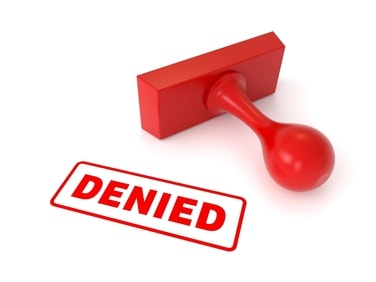 If your initial ERISA disability claim has been denied, you have reached a critical juncture in the claims process. You may feel discouraged, and understandably so, but you still have the opportunity to obtain the disability benefits to which you are entitled. You have the right to file an administrative appeal.
If your initial ERISA disability claim has been denied, you have reached a critical juncture in the claims process. You may feel discouraged, and understandably so, but you still have the opportunity to obtain the disability benefits to which you are entitled. You have the right to file an administrative appeal.
At this point, precision and timing are of the essence. The good news is that you do not have to go through the appeals process alone – in fact, you probably shouldn’t. The experienced ERISA attorney J. Price McNamara can work with you to ensure that you have perfected your disability claim in accordance with the recommendations of your ERISA plan administrator. Having a qualified ERISA attorney in your corner is the surest way to protect and assert your rights while the opportunity is still open to you.
What is an administrative appeal?
The administrative appeal is the single most important factor in your ability to obtain disability benefits after your initial claim has been denied. The appeal is not simply a letter explaining why you believe the decision should be overturned, nor is it something that can generally be amended once it has been submitted for review. Each ERISA plan has its own appeals process, which is explained in the official plan document. Your administrative appeal must follow this processprecisely. The failure to do so will almost certainly prevent you from collecting your benefits, either through the appeals process or future litigation.
Your appeal should be comprehensive and exhaustive. It should include:
- All information and documentation requested in the document notifying you of your claim denial.
- Detailed medical information supplied by your doctor.
- Certified statements by your doctor and, if possible, other doctors that can corroborate his or her opinion.
- Articles regarding your condition from medical journals and other reputable publications.
- References to specific provisions in the official plan document relevant to your appeal.
- A thorough, well-supported explanation as to why the decision to deny your claim was incorrect. The fact that your doctor has declared that you are legitimately injured and cannot work is not, by itself, sufficient evidence that you should receive disability benefits.
What can I do if I discover a piece of important evidence after I submit my appeal?
You most likely will not have the opportunity to amend your appeal with this evidence or any other documentation or information. Essentially, you get one chance to present the strongest evidence possible of your disability, and this is it. Furthermore, if you fail to provide the requested documents and information, it is highly unlikely that you will be able to introduce this evidence before a judge if your appeal is denied. There are special circumstances under which the court may allow the submission of such evidence, such as when it was originally excluded as a result of a due process violation. However, these instances are extremely rare.
Can I file a lawsuit to dispute my claim denial?
You cannot file a lawsuit to dispute the original claim denial. You can file a lawsuit to dispute the appeals denial, however. The appeals process as outlined by the official plan document is not optional. It is a non-negotiable prerequisite to initiating litigation.
What is the deadline for filing an appeal?
You have 180 days from the receipt of your claim denial to file an administrative appeal.
Can I file an appeal without the aid of a lawyer?
You can, but you should be aware that you will have a complicated, time-consuming task ahead of you if you do. An experienced ERISA attorney will have arranged appeals according to a wide range of plans, including those administrated by powerful insurance companies. You won’t have to worry about gathering medical evidence, writing the letter of appeal, or making sure that you have supplied every single document required by the official plan.
An ERISA attorney will also be able to determine whether the information provided by your doctor is sufficient and whether it is presented in language that your plan administrator will find appropriate and acceptable.
Remember that your plan administrator, especially if it is an insurance company, has extensive legal and medical resources at its disposal. There is strong financial incentive for your administrator to deny your appeal, and you can be certain that the documents you provide will be scrutinized in search of reasons to do so. Further, your administrator knows that if there are flaws in your appeal, you probably won’t have sufficient evidence to win a court case, even if you decide to hire an attorney at this point.
On the other hand, if you hire an ERISA attorney, your plan administrator will know that any subsequent litigation will be hard fought and require a fair amount of time, money, and resources. While your appeal may still be denied, you will definitely be improving your odds that you will be awarded the benefits you deserve.
The first step toward ensuring the preservation of your rights is to arrange a free case evaluation with J. Price McNamara, our skilled ERISA attorney. We can advise your of your legal rights and options and help you understand the best course of action in your case.
